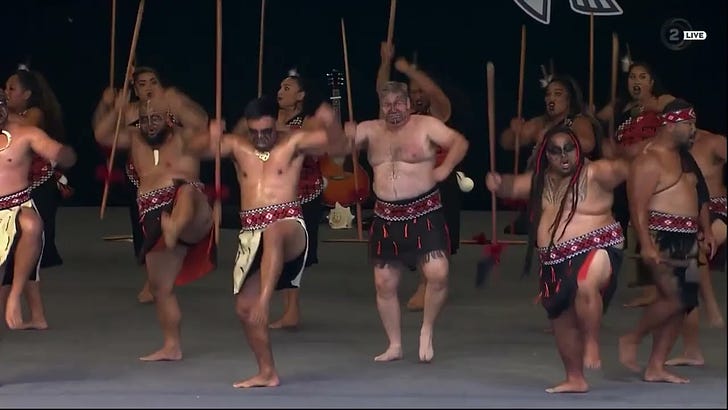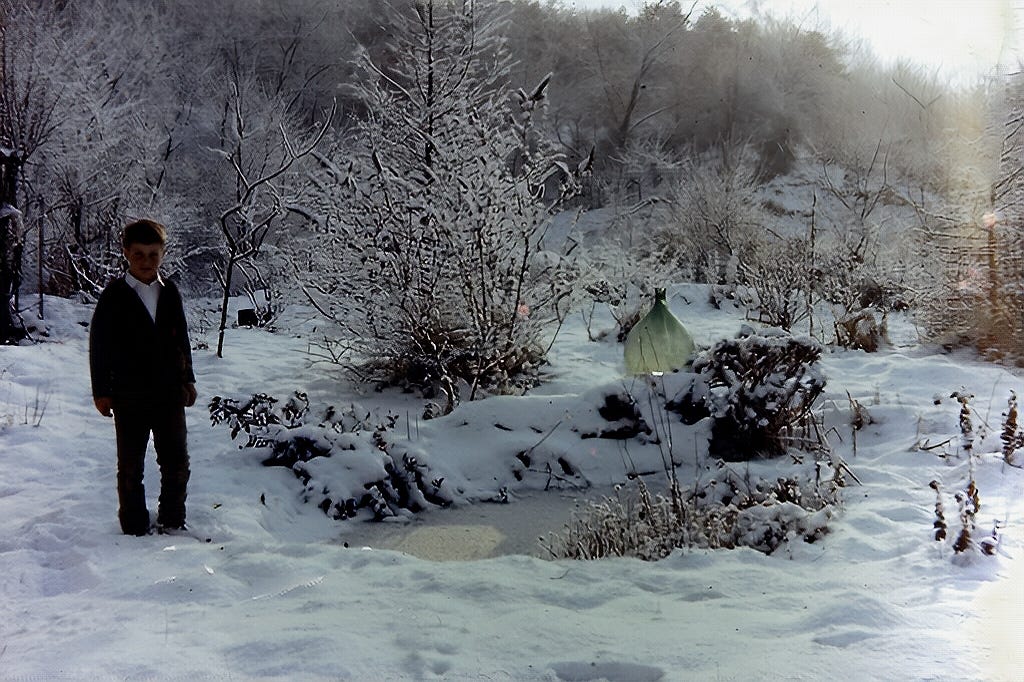How do you defend yourself from the Maori people?
Well my adopted brother is 6 years younger than me, so I didn't have to.
Today (13 December) in 1642, Abel Tasman first sighted the South Island of New Zealand, over 120 years before Captain Cook. His ships anchored in Golden Bay. The local Maori belonging to the Ngāti Tūmatakōkiri tribe saw them and were curious. They had never seen sailing ships or white people before. They paddled out in their canoes and tried to communicate with them.
It is said that the Maori people may have thought Tasman’s ships were taniwha, supernatural beings similar to dragons in other cultures, and the sailors as taniwha offspring. They greeted them, probably with a haka and a show of weapons. If you have never seen a haka, have a look at this video from this year’s Te Matatini competition. This is a competition and celebration of Maori performing arts and a very moving experience. But imagine if you will, that it is 1642, and neither Maori nor Europeans had ever seen each other before.
The local iwi or Maori tribe were challenging the taniwha, but that doesn’t mean that it was meant to be threatening. It might have been a mixture of challenge, welcome, and a show of strength, but there was probably significant fear and trepidation on both sides.
Tasman’s response was to fire his canons at the Maori canoes, dispersing them, probably confirming to the locals that the ships were in fact taniwha. Four days later it is said that Maori attacked a small Dutch boat and four sailors lost their lives. Tasman named the bay "Moordenaarsbaai" (Murderers' Bay), and while he sailed up the coast, mapping parts of the coastline, he never again set foot on land in New Zealand.
He must have convinced the people of the Dutch Republic that there was nothing worth pursuing in Staten Land, which was what he originally called New Zealand. Perhaps because the Netherlands at the time was made up of seven provinces ruled by military commanders known as Stadtholders.
I have to wonder what would have become of New Zealand if the Dutch had realised there was gold and pounamu (jade) in the hills and the sea was home to a huge number of whales. Anyway, they didn’t, and it wasn’t until 127 years later that Captain Cook arrived and claimed parts of the country in the name of King George III.
In December of 1968, I arrived back in Holland (where I was born) to live with my grandparents after my parents’ marriage broke up. Being winter, it wasn’t long before I went to school, and I remember one of the first things the kids asked me about. It was, “How do you defend yourself from the Maori? Do they attack you with spears?”
I couldn’t believe it. You think of Europe as being quite sophisticated, but as I quickly learned, all the countries in Europe are pretty inwardly focused. While many Dutch people migrated to other countries seeking a better future, the ones that stayed behind, were pretty much unaware of our part of the world.
My adopted younger brother was Maori, and I didn’t have to defend myself from him as he was 6 years younger than me. We had Maori friends and neighbours, just as we had friends and neighbours of all sorts of ethnicities. I didn’t differentiate in any way at all, we were just people. I did love learning Maori songs, action dances and haka, but for all intents and purposes from this boy’s perspective, this was just part of my everyday life.
Where I’m going in my imagination on this historic day is wondering if things would have been any different if the Dutch had colonised New Zealand instead of the British. Both had pretty significant empires and were pretty keen on dominating trade around the world. Neither nation has had a great record when it comes to respecting whatever people were in the countries they ‘claimed’.
If the Netherlands had wanted New Zealand, they would also have taken Australia, although I doubt they would have considered it as a penal colony to get criminals as far away from their homelands as possible, as the British did.
I suspect that things wouldn’t be dramatically different. The Dutch did have ‘formal treaties’ with some indigenous people. They often involved land cessions, and were typically unequal and negotiated under duress. They often made agreements with local people with agreements open to interpretation in their favour. They felt they could easily discard them if it suited them.
In 2017 descendants of the Maori Ngāti Tūmatakōkiri people and descendants of the Dutch explorers from Abel Tasman’s hometown of Grootegast came together to acknowledge and commemorate the long history, in fellowship and appreciation of their connected history.
This event would have been hugely emotional for both groups. It is something special that ensured that these stories would not be forgotten by future generations.



